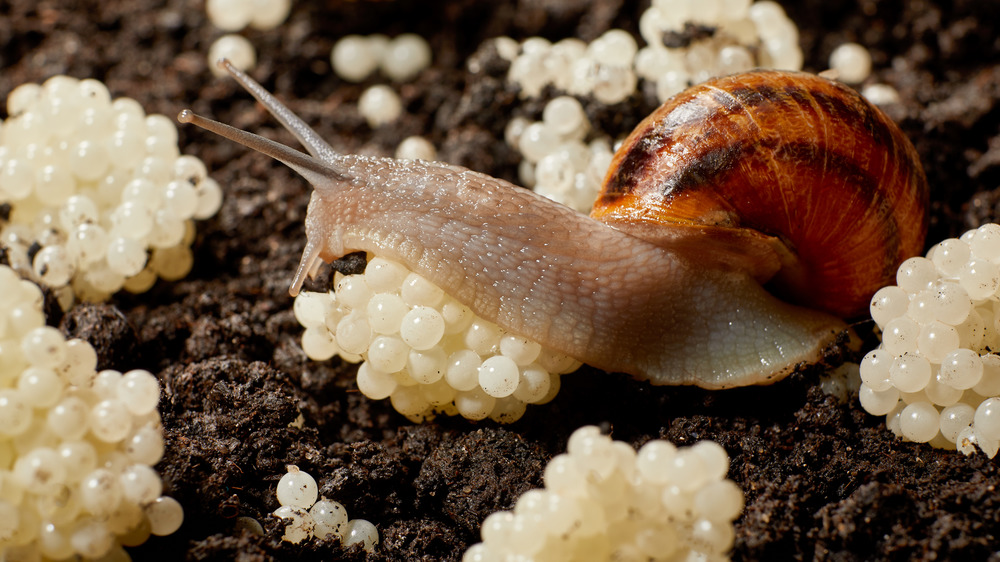The Unusual Caviar Andrew Zimmern Swears By
Andrew Zimmern is a chef, restaurateur, and writer, but many Americans know him as the guy eating all those intriguing foods. As the creator and host of the Travel Channel's Bizarre Foods, Zimmern has traveled the world exploring culinary wonders. It's important to note that Zimmern intended the meaning of "bizarre" here as "unusual and interesting." Every food is a part of a different culture and only novel to those from other parts of the globe, and Zimmern has always sought to open these worlds up and celebrate these dishes.
Zimmern has continued to do so throughout #quarantinelife from his own Instagram page. Just last week, he sang the praises of a totally different kind of caviar you may not be familiar with yet.
Caviar is known for being fish eggs, soft little bubble-like spheres bursting with salty flavor. It's also known for its luxurious status—Guinness World Records says it's the world's most expensive food, and one particular kind can cost $34,500 per kilo. Specifically, it's sturgeon roe (roe means fish eggs), but other interpretations, called caviar but not technically caviar, can also come from trout or salmon. Even vegans can indulge, too, though with eggplant caviar (via Simply Recipes). Thanks to Andrew Zimmern, we now know we can add one more type to the unofficial caviar list: snail.
According to Zimmern, snail caviar isn't "as saline as sturgeon or salmon caviar, but it pops in the mouth."
What exactly is snail caviar?
Fans of escargot may be readier than others to try caviar made from snail eggs. Zimmern's own Instagram fans demonstrated the love/hate divide. "That's gonna be a no for me big dawg," commented @_bc24, while @dandolfdadeadly both expressed a rave review and described its flavor: "It's a wonderful product. Deep earthy notes like a forest floor on an early autumn morning."
Snail caviar is great news in one respect. The most coveted kind of caviar comes from the Beluga sturgeon, which has been so over-fished as a result that it became critically endangered. The United States actually banned the importation of Beluga caviar in 2005 (via YouTube). Snail caviar is an exciting new way to enjoy a fancy dish, ethically.
Snail farming is booming in Italy, according to the New York Post, caviar being one of the drivers. Farmers place sterilized glasses into the soil to catch the eggs snails lay, writes Modern Farmer. They have to carefully sort through the eggs with tweezers to discard any slight imperfections. This is why snail caviar has the advantage over Beluga caviar, in that the snails don't have to be killed, but such a process means you can't expect this version to be a cheap option. A kilo can run $3,000.
If you do get your hands on some snail caviar, which can taste in the vein of mushrooms, follow Andrew Zimmern's lead and enjoy them at their best and simplest, with just a squeeze of lemon.

